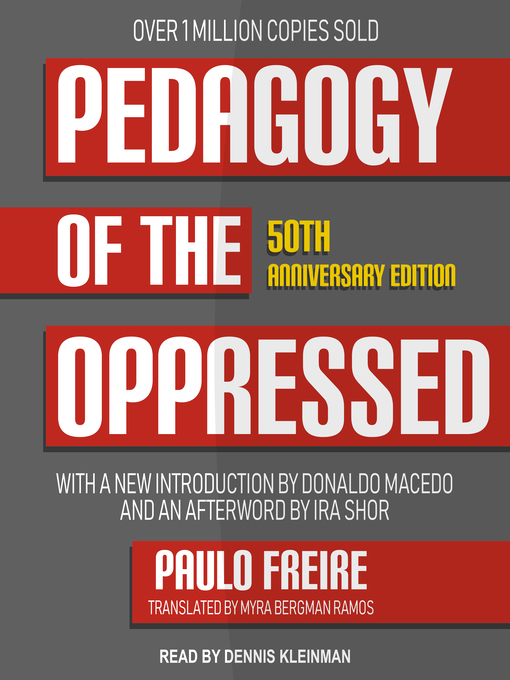- Available now
- New audiobook additions
- Most popular
- Try something different
- See all audiobooks collections

This 50th anniversary edition includes an updated introduction by Donaldo Macedo, a new afterword by Ira Shor, and interviews with Marina Aparicio Barberán, Noam Chomsky, Ramón Flecha, Gustavo Fischman, Ronald David Glass, Valerie Kinloch, Peter Mayo, Peter McLaren, and Margo Okazawa-Rey to inspire a new generation of educators, students, and general audiences for years to come.
-
Creators
-
Publisher
-
Release date
October 23, 2018 -
Formats
-
OverDrive Listen audiobook
- ISBN: 9781977316523
- File size: 221722 KB
- Duration: 07:41:55
-
-
Languages
- English
Why is availability limited?
×Availability can change throughout the month based on the library's budget. You can still place a hold on the title, and your hold will be automatically filled as soon as the title is available again.
The Kindle Book format for this title is not supported on:
×Read-along ebook
×The OverDrive Read format of this ebook has professional narration that plays while you read in your browser. Learn more here.